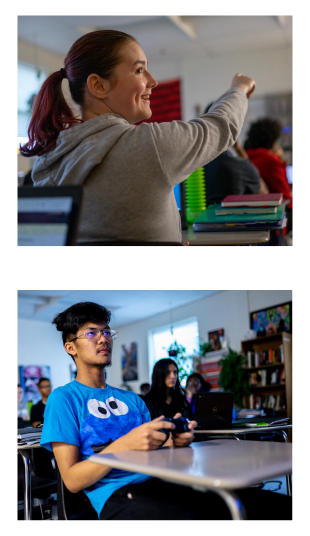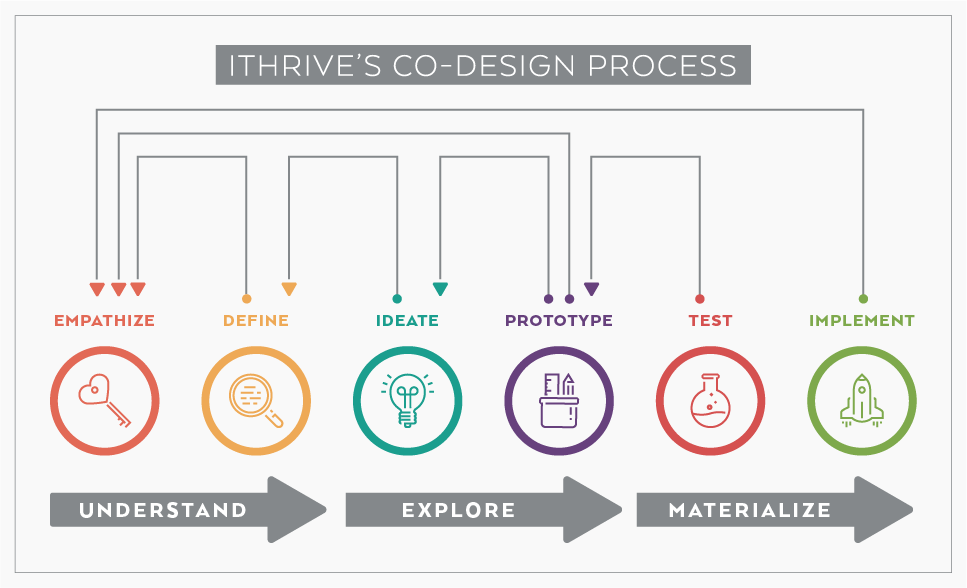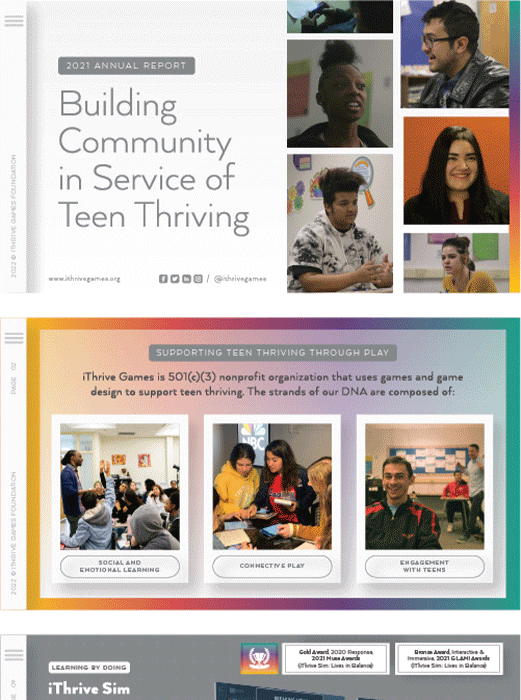
Using games and game design to support teen thriving.
Teens have the energy and creative potential to build and imagine a better world. At iThrive Games, we design and test game-based learning tools that draw on this genius. Alongside students, educators, game developers, and researchers, we co-create transformative learning experiences that support teen thriving.

![]()
iThrive Games prepares teens to thrive by meeting them where they are, and by working in partnership towards a world where all have the voice, choice, and agency to reach their full potential. We use games and game design to equip teens with the social and emotional skills they need to be healthy and resilient, the tools that support and protect their mental health and well-being, and the systems thinking they need to recognize inequity along with meaningful opportunities to imagine and design a better world.
![]()
We envision a world where teens are seen and valued by society, where adults have the tools they need to support teens' development, where all live healthy and purposeful lives, and where there is equal opportunity open to all, especially to those who have traditionally been marginalized.
All teens deserve learning environments that ignite and value their potential. The experiences and tools we co-create with young people invite them to practice and nurture their social and emotional skills, flex their creativity, and explore and examine systems they witness, navigate, and want to change.

Every tool, experience, and resource that seeks to engage teens deeply should include their insight and creative energy. At iThrive Games, we offer a unique co-design process with teens that ensures this, supporting the development of products and programs that are relevant, engaging, meaningful, and memorable to young people.
Whether we're co-creating experiences with a museum, government agency, educational organization, or community group, teen voice is both the spark and center of our work.

Put our co-design process to work for you:
iThrive's team of experts are professionals trained in psychology, social and emotional learning, adolescent development, and inclusive and equitable teaching practices. Hire us to co-create with you to:
- Tap into the genius of teens and young adults to address unique challenges and realize opportunities
- Build digital or tabletop games, role-playing simulations, curricular units, and other immersive experiences from scratch
- Adapt existing educational offerings to embed social and emotional learning opportunities
- Support the ideation/creation of grant and project proposals to fund the development of teen-centered, immersive learning experiences

![]()
"iThrive Games is doing the most innovative, integrated social and emotional learning work I've seen in the high school space. Their dedication to the principles of Universal Design for Learning is reflected in each experience they co-create with teens and educators."
![]()
Gabrielle Rappolt-Schlichtmann
Executive Director and Chief Scientist, EdTogether
"We relied on the deep design expertise inside iThrive to manage the development of learning experiences worthy [of Symphony,] an innovative platform. The iThrive co-design approach has ensured we retain a very high quality standard for user experiences."
![]()
Mehrdad Baghai
Co-Founder and Chief Executive Officer, High Resolves
![]()
![]()
 |
 |
 |
 |
 |
 |
![]()
 |
 |
 |
 |
 |
 |
![]()

For media requests and inquiries, please contact eghosa.asemota@ithrivegames.org.
- The Boston Globe. This Tabletop Game Teaches Players About the Juvenile Justice System
- Healthline. Interactive Gaming Can Help Children, Teens Battle Loneliness During Pandemic, Experts Say.
- UNESCO Mahatma Gandhi Institute of Education for Peace and Sustainable Development. Using Games for Transformation and Social and Emotional Learning
- Ed Surge. Educators Share How Video Games Can Help Kids Build SEL Skills
- New York Times. Depressed and Anxious? These Video Games Want to Help
- UNC News. Game Design Studio Kicks Off on Campus for Two Weeks
- Ludogogy Magazine. Imagining a Better World: Game Design with and for Teens
- UVA Today. Batten School Helps Local Teens Explore Public Policy, Leadership
![]()














